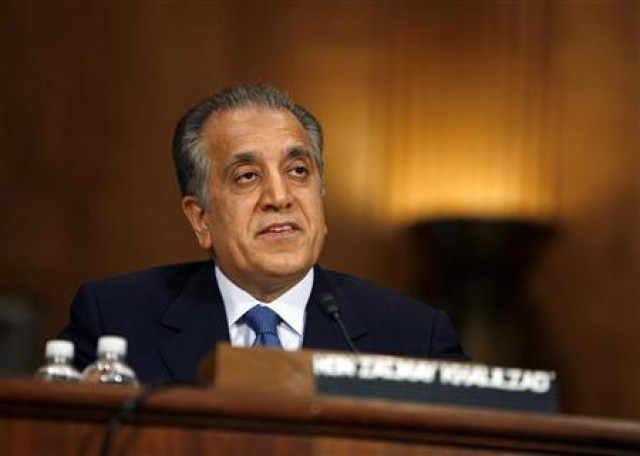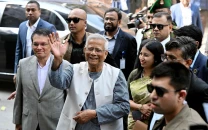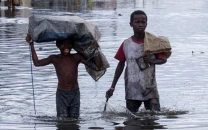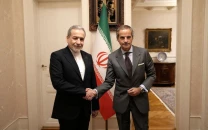World powers stress Afghanistan’s right to make political, security decisions
US holds talks on Afghan peace process with China, Russia and EU

United States Special Envoy Zalmay Khalilzad. PHOTO: REUTERS
This week Washington had witnessed increased diplomatic efforts to push for the Afghan peace process.
According to statements issued by the State Department of the United States, officials from US administration met representatives from China and Russia while US Special Representative for Afghanistan Reconciliation Ambassador Zalmay Khalilzad held a meeting with European Union Special Envoy for Afghanistan Ambassador Roland Kobia.
The high-level huddle focused on efforts to bring peace, prosperity and security to the war-torn country. Emphasis was laid on ensuring that the Afghan soil is not used by international terrorist groups or individual against any country.
US envoy Khalilzad arrives in Islamabad today
The latest push for a peace came after President Donald Trump wrote a letter to Prime Minister Imran Khan, seeking Pakistan’s help for the negotiated settlement of the Afghan conflict. In the letter, the United States had sought PM Imran's full support to advance Afghan peace process. The correspondence came after Trump accused Pakistan of "doing nothing" despite receiving "billions of dollars" in aid.
Officials from China, Russia and the US exchanged views on the current status of the peace process and underscored “their respect for the sovereignty, independence, and territorial integrity of Afghanistan, as well as Afghanistan’s right to make its own political, security, and economic decisions”.
The three nations will continue to seek common efforts and coordination on the Afghan peace process, the communique added.
Meanwhile, Khalilzad and Kobia agreed that bringing an end to Afghanistan’s war and achieving peace must be the key objective, and that violence should cease.
The US envoy is on a mission to expedite the Afghan reconciliation process as the war in the conflict-hit country entered its 19th year. In the recent past, he had held a series of meetings with the Pakistani leadership as part of the US renewed push to bring the Afghan Taliban to the negotiating table.
“To benefit all Afghans, the region, and the world, they further underscored that any peace agreement should uphold the rights of all Afghans, in particular those of women, minorities, and children,” said the State Department’s statement on Khalilzad’s meeting with the EU envoy.
“The United States and the European Union will continue their close coordination. They encourage all countries to support the current peace process, inclusive intra-Afghan talks, and lasting development and reconstruction in Afghanistan,” it added.
US envoy Khalilzad to visit Pakistan as part of four-nation tour
Earlier this year, a three-day parley, facilitated by the government in Islamabad, was attended by representatives of the Afghan Taliban, the US as well as officials from Pakistan and Saudi Arabia.
It was the first time that the Taliban’s military and political leaders attended a negotiation – something that has renewed hopes of a possible peace deal. Previously, the Taliban were only represented by their political office in Qatar.
The presence of the Taliban leaders like Mullah Amir Mutaqi, Qari Yahya, Mullah Mohibullah Hamas and Mullah Abbas Akhund at the UAE talks suggests seriousness of the insurgent group towards the latest round of discussions facilitated by Pakistan.
The invitation for the talks, however, was not extended to the Afghan government. The Afghan Taliban does not acknowledge the current political setup in the war-ridden country and refuse to sit on the negotiating table with the Ashraf Ghani-led government.


















COMMENTS
Comments are moderated and generally will be posted if they are on-topic and not abusive.
For more information, please see our Comments FAQ